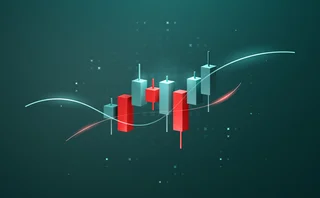For Commodities Swaps Dealers, Agenda Moves from Definitions to Reporting

Last week the Commodity Futures Trading Commission (CFTC) delivered its long-awaited definitional clarification defining a "swaps dealer" as a firm trading above $8 billion swaps or option-to-swaps (swaptions) contracts in notional value, where initially the number had been set rather drastically lower at only $100 million, according to WatersTechnology's sister publication Energy Risk.
While the ruling brought a collective sigh of relief across the industry, particularly among energy firms, large financials remain covered under the new regulation.
As elsewhere across the kaleidoscopic Dodd-Frank landscape, technology's role to play in commodity swaps lay, in part, in new reporting requirements. For swaps dealers, the CFTC defines 50 or more swaps contracts completed in a month as "reportable positions" that must be compiled in a "Large Trader Report", utilizing standardized codes for each individual commodity (or, in the regulatory vernacular, "Covered Futures Contracts") of which there are, to date, 46.
Phil Wang, senior vice president of product management at OpenLink, a derivatives services provider that has recently introduced a new reporting tool for commodities swaps, says that while the requirements are fairly straightforward, question marks abound where firms that are doing trades across multiple product codes─for example, different locations, basis, basket, or index products─and they have exposure to multiple commodities. In those instances firms need to first decompose and then aggregate the information per the reporting rules, Wang says.
That complexity, he says, runs consistently across agricultural, metals, and other commodities sub-classes. One example, offers OpenLink's Jack Viviano, a senior business analyst, would be the pairing in a basis swap─which utilizes the price differential between two commodities or locations.
Wang points out that, with the deadline for compliance "most likely in July" or 60 days once the definitions have been filed in the federal register, swaps dealers will obviously need to be ready and will represent the majority of demand for OpenLink's new reporting functionality. However, he also notes that there's also interest coming from clearing members and derivatives clearing organizations, which have been complying since November 2011.
While many of those actors are using self-built platforms, OpenLink launched its reporting tool for commodities swaps because the vendor feels that even though the solution is targeted toward large traders, it will appeal to various other users because it "reflects the same analytics required by the CFTC for real-time position limit monitoring on futures and options exposure - which is now being extended to OTC derivatives," according to Viviano.
Additionally, OpenLink designed the solution with the expectation that the rules will continue to be tweaked and get refined, Viviano adds. Furthermore, regulators choosing to extend "Larger Trader Reporting" to cover additional products and new commodity codes over time, is highly likely─especially if the CFTC revises its rules after initial phase-in period of six months elapses, as allowed by a sunset provision in the regulation according to a paper by law firm Skadden Arps.
"We really focused on building a solution that would be easily extendable over time, making adding new codes and products a simple matter of configuration," rather than a new version of software, he concludes.
Only users who have a paid subscription or are part of a corporate subscription are able to print or copy content.
To access these options, along with all other subscription benefits, please contact info@waterstechnology.com or view our subscription options here: http://subscriptions.waterstechnology.com/subscribe
You are currently unable to print this content. Please contact info@waterstechnology.com to find out more.
You are currently unable to copy this content. Please contact info@waterstechnology.com to find out more.
Copyright Infopro Digital Limited. All rights reserved.
As outlined in our terms and conditions, https://www.infopro-digital.com/terms-and-conditions/subscriptions/ (point 2.4), printing is limited to a single copy.
If you would like to purchase additional rights please email info@waterstechnology.com
Copyright Infopro Digital Limited. All rights reserved.
You may share this content using our article tools. As outlined in our terms and conditions, https://www.infopro-digital.com/terms-and-conditions/subscriptions/ (clause 2.4), an Authorised User may only make one copy of the materials for their own personal use. You must also comply with the restrictions in clause 2.5.
If you would like to purchase additional rights please email info@waterstechnology.com
More on Trading Tech
After acquisitions, Exegy looks to consolidated offering for further gains
With Vela Trading Systems and Enyx now settled under one roof, the vendor’s strategy is to be a provider across the full trade lifecycle and flex its muscles in the world of FPGAs.
Enough with the ‘Bloomberg Killers’ already
Waters Wrap: Anthony interviews LSEG’s Dean Berry about the Workspace platform, and provides his own thoughts on how that platform and the Terminal have been portrayed over the last few months.
BofA deploys equities tech stack for e-FX
The bank is trying to get ahead of the pack with its new algo and e-FX offerings.
Pre- and post-trade TCA—why does it matter?
How CP+ powers TCA to deliver real-time insights and improve trade performance in complex markets.
Driving effective transaction cost analysis
How institutional investors can optimize their execution strategies through TCA, and the key role accurate benchmarks play in driving more effective TCA.
As NYSE moves toward overnight trading, can one ATS keep its lead?
An innovative approach to market data has helped Blue Ocean ATS become a back-end success story. But now it must contend with industry giants angling to take a piece of its pie.
BlackRock, BNY see T+1 success in industry collaboration, old frameworks
Industry testing and lessons from the last settlement change from T+3 to T+2 were some of the components that made the May transition run smoothly.
Banks seemingly build more than buy, but why?
Waters Wrap: A new report states that banks are increasingly enticed by the idea of building systems in-house, versus being locked into a long-term vendor contract. Anthony explores the reason for this shift.







